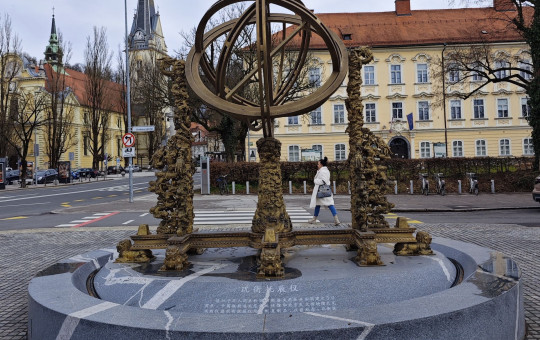Date: 13. November 2025
Time to read: 1 min
Slovenian and international researchers, representatives of universities, institutes, and public administration gathered in Ljubljana for the NATO Science for Peace and Security (SPS) Programme Information Day. The event provided an opportunity to learn more about the programme’s operation, financial mechanisms, and opportunities for cooperation in international scientific and technological projects.
For more than six decades, the NATO Science for Peace and Security Programme has been supporting civil research projects that contribute to the security, stability, and prosperity of society. Its goal is to strengthen scientific cooperation among NATO member and partner countries and to promote innovation that addresses global challenges of the modern world.
Building a More Resilient Society
The event, jointly organised by the Ministry of Foreign and European Affairs, the Ministry of Higher Education, Science and Innovation, and the Ministry of Defence in cooperation with the Jožef Stefan Institute, highlighted the importance of science in enhancing societal resilience to contemporary security threats.
Speakers included representatives of all three ministries and Piers Cazalet, Director of the NATO Defence and Security Cooperation Directorate, who presented the programme’s key priorities and new opportunities for collaboration. He emphasised that Slovenia is considered an active and reliable partner within the SPS framework, with its researchers among the most successful project applicants.
-
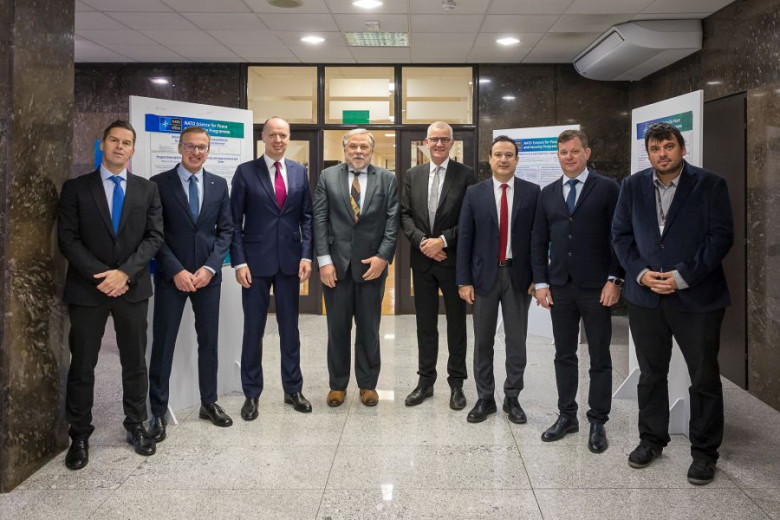 Representatives of several ministries and institutions emphasized the importance of strengthening society’s resilience to various risks at the information day of NATO’s Science for Peace and Security Programme. Photo: Marjan Verč
Representatives of several ministries and institutions emphasized the importance of strengthening society’s resilience to various risks at the information day of NATO’s Science for Peace and Security Programme. Photo: Marjan Verč
-
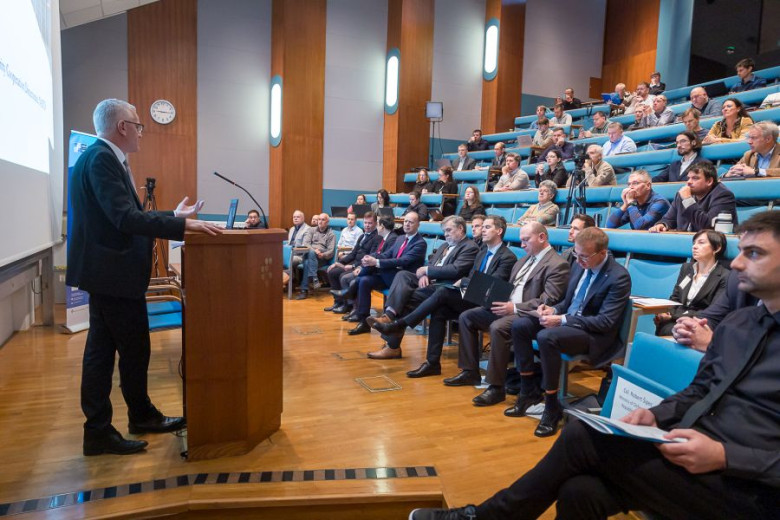 The Director of NATO’s Defence and Security Cooperation Directorate, Piers Cazalet, emphasized that security policy is changing every day. Photo: Marjan Verč
The Director of NATO’s Defence and Security Cooperation Directorate, Piers Cazalet, emphasized that security policy is changing every day. Photo: Marjan Verč
Areas of Focus
The programme provides project funding, expert advice, and technical support for the development of innovative solutions across a wide range of fields: environment and climate change, energy security, emerging technologies, counter-terrorism, management of CBRN (chemical, biological, radiological, and nuclear) threats, defence against hybrid threats, civil society resilience, cyber defence, and the human and social dimensions of security.
-
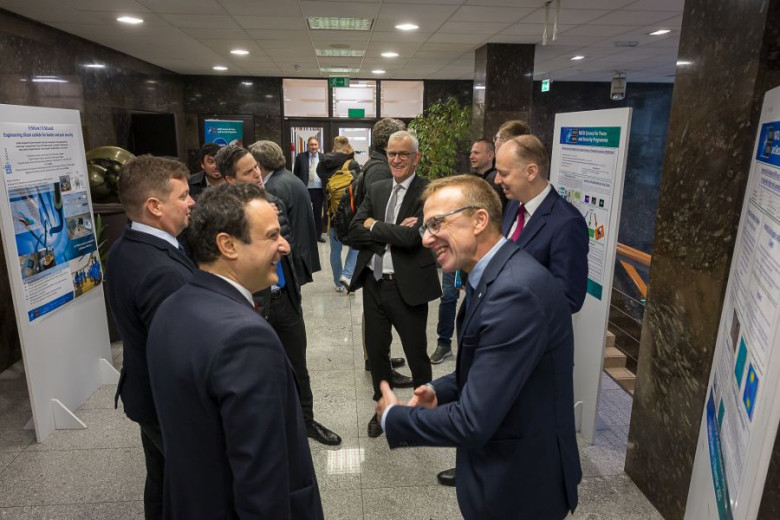 At the information day, participants had the opportunity to learn about the practical experiences of Slovenian and international researchers who have already participated in the programme. Photo: Marjan Verč
At the information day, participants had the opportunity to learn about the practical experiences of Slovenian and international researchers who have already participated in the programme. Photo: Marjan Verč
-
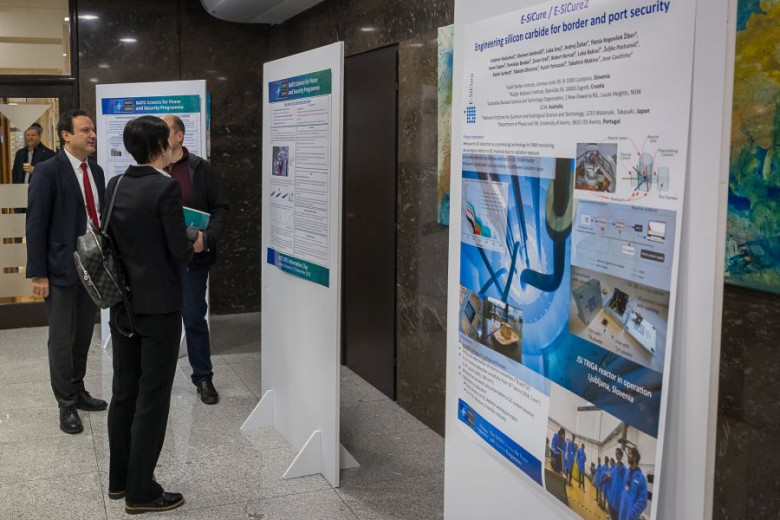 Currently, 176 activities from 56 countries are underway or in preparation, most of them multi-year projects. Photo: Marjan Verč
Currently, 176 activities from 56 countries are underway or in preparation, most of them multi-year projects. Photo: Marjan Verč
-
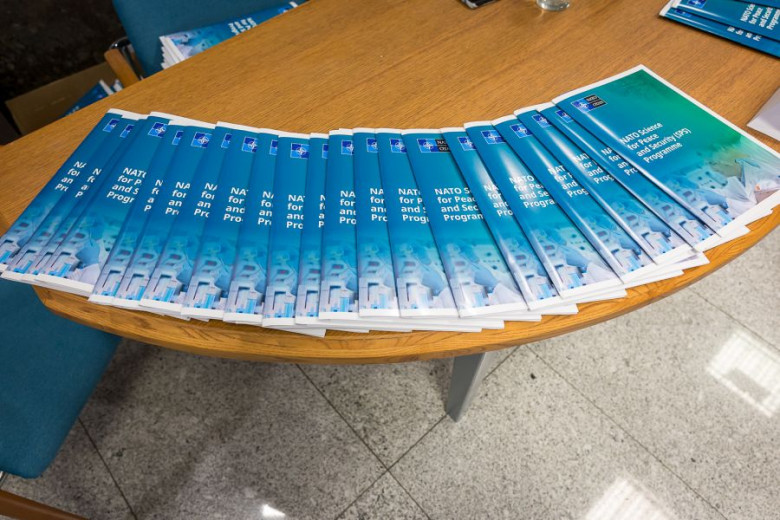 The information day offered participants an insight into the structure and functioning of the programme, as well as the project application process and funding conditions. Phto: Marjan Verč
The information day offered participants an insight into the structure and functioning of the programme, as well as the project application process and funding conditions. Phto: Marjan Verč
Slovenian researchers have been actively participating in the programme for several years, including from the Jožef Stefan Institute, the University of Maribor, and the National Institute of Chemistry. Successful projects include the development of nanostructured materials for detecting hazardous molecules, the use of radar signals for landmine detection, the development of advanced batteries and supercapacitors, and research supporting the role of women in peace processes.
Importance for Slovenia
By participating in the SPS Programme, Slovenia strengthens its position as an active NATO member and enhances the international visibility of its scientific excellence. The projects developed within the programme contribute to solutions that benefit civil society and the security of citizens, as well as to sustainable development and technological progress.





